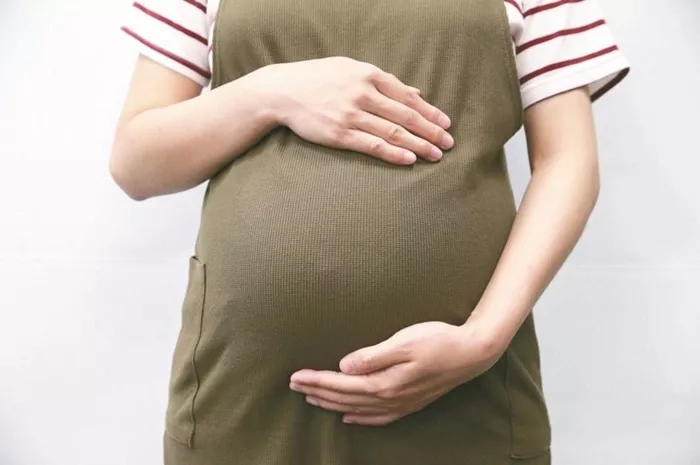During pregnancy, adequate hydration is crucial for both the mother’s health and the developing baby. Water plays a vital role in various bodily functions, especially when a woman is pregnant. Understanding how much water to drink can ensure optimal health and well-being throughout pregnancy.
Why Hydration Matters During Pregnancy
Hydration is essential for everyone, but it becomes even more critical during pregnancy. Water helps maintain the body’s fluid balance, regulates body temperature, aids in digestion, flushes out toxins, and supports the transport of nutrients. For pregnant women, proper hydration is crucial for the amniotic fluid, which surrounds and protects the fetus, as well as for the increased blood volume needed to supply nutrients to the baby.
Factors Affecting Hydration Needs
Several factors influence how much water a pregnant woman should drink:
Stage of Pregnancy:
Hydration needs may vary during different stages of pregnancy. In the early stages, maternal blood volume increases, requiring more fluids. Later in pregnancy, adequate hydration helps prevent common issues like constipation and urinary tract infections.
See also: How to Determine How Many Months Pregnant You Are?
Climate and Activity Level:
Hot and humid weather increases water loss through sweat, requiring higher fluid intake. Similarly, physical activity increases fluid needs due to sweating and increased metabolic demands.
Individual Differences:
Each woman’s hydration needs can vary based on her body size, metabolism, and overall health.
How Much Water is Recommended?
The Institute of Medicine (IOM) provides general guidelines for daily water intake, including during pregnancy. These guidelines suggest that pregnant women aim for about 10 cups (2.3 liters) of fluids daily from all beverages and foods. This recommendation includes water obtained from fruits, vegetables, and other beverages, in addition to plain water.
Tips for Staying Hydrated
Staying adequately hydrated can sometimes be challenging, but these tips can help pregnant women meet their daily fluid needs:
Carry a Water Bottle:
Keeping a reusable water bottle handy serves as a visual reminder to drink throughout the day.
Set Reminders:
Use phone alarms or reminders to prompt drinking water regularly, especially if busy or distracted.
Monitor Urine Color:
Aim for pale yellow urine as a sign of adequate hydration. Dark yellow urine may indicate dehydration.
Include Fluid-Rich Foods:
Fruits like watermelon and vegetables like cucumber have high water content and contribute to daily hydration goals.
Avoid Excess Caffeine:
While moderate caffeine intake is generally safe during pregnancy, excessive caffeine can act as a diuretic, increasing fluid loss.
Signs of Dehydration During Pregnancy
Recognizing signs of dehydration is crucial to prevent complications. Symptoms may include:
Dark Urine: Concentrated urine that is dark yellow or amber in color.
Dry Mouth and Thirst: Persistent dryness despite drinking fluids.
Fatigue and Dizziness: Feeling tired or light-headed, especially when standing up.
Headaches: Mild to moderate headaches that do not resolve with rest.
Decreased Urination: Producing significantly less urine than usual.
If these symptoms occur, increasing fluid intake and consulting with a healthcare provider is recommended to prevent dehydration-related complications.
Special Considerations
Certain conditions during pregnancy may require closer attention to hydration:
Gestational Diabetes:
Women with gestational diabetes may need to monitor carbohydrate intake along with fluid intake to manage blood sugar levels.
Hyperemesis Gravidarum:
Severe nausea and vomiting can lead to dehydration. These women may require intravenous fluids to maintain hydration.
Multiple Pregnancies:
Women carrying twins or multiples typically have higher fluid needs due to increased blood volume and amniotic fluid.
Conclusion
Adequate hydration is essential for a healthy pregnancy. By understanding the factors influencing hydration needs and following practical tips, pregnant women can maintain optimal fluid balance, supporting both their own health and the development of their babies. Regular monitoring of hydration status and prompt attention to signs of dehydration ensure a smoother and healthier pregnancy journey.
In summary, while the exact amount of water needed can vary, aiming for approximately 10 cups (2.3 liters) of fluids daily, including water from beverages and foods, provides a reasonable guideline for most pregnant women. By prioritizing hydration and adopting simple strategies, expectant mothers can nurture their well-being and that of their growing baby.
FAQs
How much water should a pregnant woman drink per day in litres?
It’s generally recommended that pregnant women drink about 2.3 liters (10 cups) of fluids daily. This includes all fluids consumed, not just water.
What happens if you don’t drink enough water while pregnant?
Insufficient water intake during pregnancy can lead to dehydration, which may cause symptoms like headaches, dizziness, constipation, and even potentially impact amniotic fluid levels and fetal development in severe cases.
Can I drink too much water while pregnant?
While it’s important to stay hydrated, drinking excessive amounts of water (beyond what your body needs) can lead to a condition called hyponatremia, where the balance of electrolytes in your body is disrupted. It’s generally advised to drink fluids in moderation, and if you have concerns, consult with your healthcare provider.
How many glasses of water should a pregnant woman drink?
The recommendation is about 8 to 10 glasses of water per day, which translates to roughly 2.3 liters (10 cups) of fluids daily. This can vary depending on individual factors and the climate where you live.


